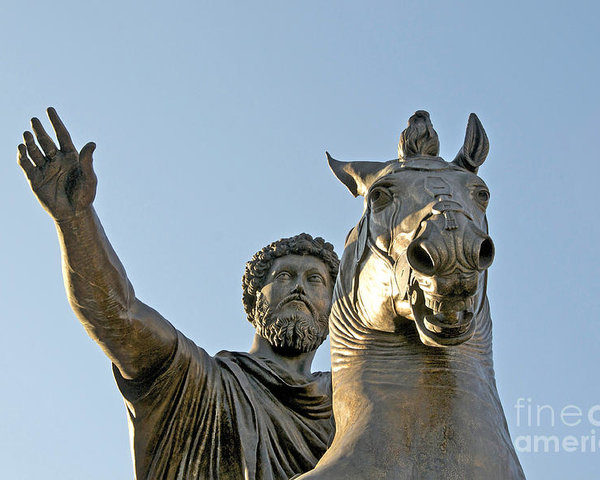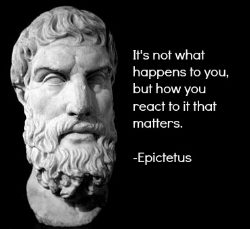Once psychologists began studying the experiences of women through a gender lens, it became increasingly clear that the study of men needed the same gender-aware approach ... the main thrust of the subsequent research is that traditional masculinity-marked by stoicism, competitiveness, dominance and aggression-is, on the whole, harmful.Since the announcement, it's been open season on the APA among conservative thinkers, who've assailed everything from the content of the guidelines to the APA's treatment of masculinity itself. The APA is charged with turning masculinity into "a pathology in need of a cure," and the guidelines have been called a "profound and appalling" rejection of "the inherent nature of men"; "the equivalent of 1,000 detached human hands nervously wringing themselves in the corner of a dark maze of funhouse mirrors accented by occasional annoying bursts of extremely woke strobe lights."
I largely agree with these colorful criticisms. But there's something more important at stake here. Stoicism-which the APA's guidelines mention twice-should not be challenged or eradicated, but understood, embraced and promoted. Stoicism is, contrary to the APA's criticism, a really, really good thing.
The APA lists "stoicism"-alongside "competitiveness, dominance and aggression"-as one of the tenets of traditional masculinity. And, while there are certainly moral and psychological arguments against dominance and aggression (both inherently negative emotions, which motivate individuals to gain power over others) the APA's attack on stoicism is misguided and harmful.
There are two types of stoicism. The first, capital 'S' Stoicism, is a Hellenistic philosophy founded by Zeno of Citium and developed by Epictetus, Seneca the Younger, Cato the Younger and Marcus Aurelius, among others. Stoicism values character, wisdom, judgment and self-discipline; it teaches "that we don't control and cannot rely on external events, only ourselves and our responses ... [and] that the source of our dissatisfaction lies in our impulsive dependency on our reflexive senses rather than logic."
The second, lowercase 's' stoicism, is a general disposition of calmness and sobriety; a commitment to remaining unemotional, dispassionate and non-reactive in the face of external events. The dictionary defines it as "enduring pain and hardship without showing one's feelings or complaining."
The APA's new guidelines take aim at a cartoonish version of the latter, a clichéd image of the man who refuses to engage with his emotions and instead bottles them up, destroying himself in the process. This is a cheap stereotype: men and women alike both struggle to grapple with and express their emotions. In taking aim at this convenient straw man, the APA overlooks the value of both attitudinal stoicism and philosophical Stoicism alike.
That's a shame, because a heaping dose of stoicism-both as a general demeanor and a philosophical practice-is exactly what American men and women need right now.
We live in an increasingly hysterical society, plagued by constant outrage, political upheaval and an abiding, ubiquitous feeling of cultural despair. Driven by bombast and fury in our politics and culture, we've entered a period of tribal warfare, defined by self-righteousness and by blind solidarity with our cultural allies and fear and hatred of our supposed cultural enemies. This is having a measurable impact on both our culture and our individual psyches: politics is driving people into therapists' offices, and depression, anxiety, drug use and suicide are skyrocketing.
These unfortunate trends are encouraged and exacerbated by a cable newsoutrage industrial complex, which churns out a kind of constant you're right, but you're losing; they're wrong, but they're winning anger-tainment, aimed at keeping fearful, angry eyes glued to television screens and an impending sense of doom fresh in viewers' minds.
The path to happiness and personal fulfillment at a harrowing cultural moment like ours is not more outrage, more activism, more shouting, and more political and cultural warfare, as many suggest. Rather, it is the conscious, careful cultivation of a stoic attitude: an attitude of calmness, acceptance and rationality in pursuit of inner peace, in the face of trials, tribulation and confusion.
Stoicism teaches that we have no power over external events and they have no power over us, if we train our minds accordingly. Marcus Aurelius writes:
Everything that happens is either endurable or not. If it's endurable, then endure it. Stop complaining. If it's unendurable ... then stop complaining. Your destruction will mean its end as well. Just remember: you can endure anything your mind can make endurable, by treating it as in your interest to do so. In your interest, or in your nature.Epictetus argues that "it's not what happens to you, but how you react to it that matters." Seneca the Younger warns that, "we suffer more in imagination than in reality," and asks "how does it help ... to make troubles heavier by bemoaning them? ... There is only one way to happiness and that is to cease worrying about things which are beyond the power of our will."
Stoicism teaches that the antidote to anxiety, confusion, frustration and anger is not to relentlessly rage against circumstances, but to accept our relative powerlessness over them and instead focus on improving ourselves and our characters through sobriety and self-discipline. No matter how breathlessly they are reported, the political events of our time-and all events of any time, for that matter-are endurable, so we ought to endure them and conserve our emotional energy for that which truly matters: pursuing better versions of ourselves.
Lines of stoic thinking can be found in every major religion: all of which, in one way or another, teach that inner peace is achievable, even at times of tremendous hardship. We have little control over the future and even less knowledge of it, and our anxieties, outrages and visceral reactions to external events often inflict more damage on our psyches in the present than the events themselves.
The suggestion that we should adopt a Stoic approach to external circumstances can seem anachronistic, or, to some-especially those who have spent the last few years incorporating their outrage into their identities as a means to make sense of things-even offensive or condescending. "Why be stoic at all," the National Review's David French asks rhetorically, "when everyone around you is indulging in the emotionalism that's often a hallmark of 'self-care'?'"
The emotionalism French correctly identifies is, itself, responsible for a great degree of our cultural dismay. Paradoxically, the fact that the recommendation to cultivate stoicism as a healthy response to political and cultural despair stirs such a visceral response among those who live and breathe modern outrage is itself an indicator that it's the right prescription for them. Stoicism involves mastery of one's emotions, not their repression.
Now is exactly the wrong time to sneer at the notion of taking events one at a time and striving to be judicious, calm, patient and wise in our emotional reactions to them. For many, a stoic demeanor and the conscious practice of Stoic philosophy may provide the best possible antidotes to the feelings of anger, confusion, bewilderment and helplessness that have come to define the zeitgeist.
Traditional masculinity, like modern feminism, means well but is imperfect and, at times can be more interested in destruction than affirmation. But stoicism-real stoicism, not the cheap caricature conjured by the APA-is among masculinity's greatest gifts to humanity.
In this time of conflagrations, we'd be fools to cast it into the fire.





And it it so happens that on the big bell curves of stoicism, men tend to be stronger in that attribute, while women less so. This is offset by sundry feminine tendencies, withouit which society as we know it could never have existed.*
R.C.
*Spare me arguments about the exceptions; someone always has to be at the tip of either end of those two bell curvers. Hell, my family was proof of it. My father was a romantic and a poet and musician, and an engineer; and my Mum, (beyond being #1 lady engineer on Shuttle Program at KSC, she has always been the most stoic of my family.)
RC